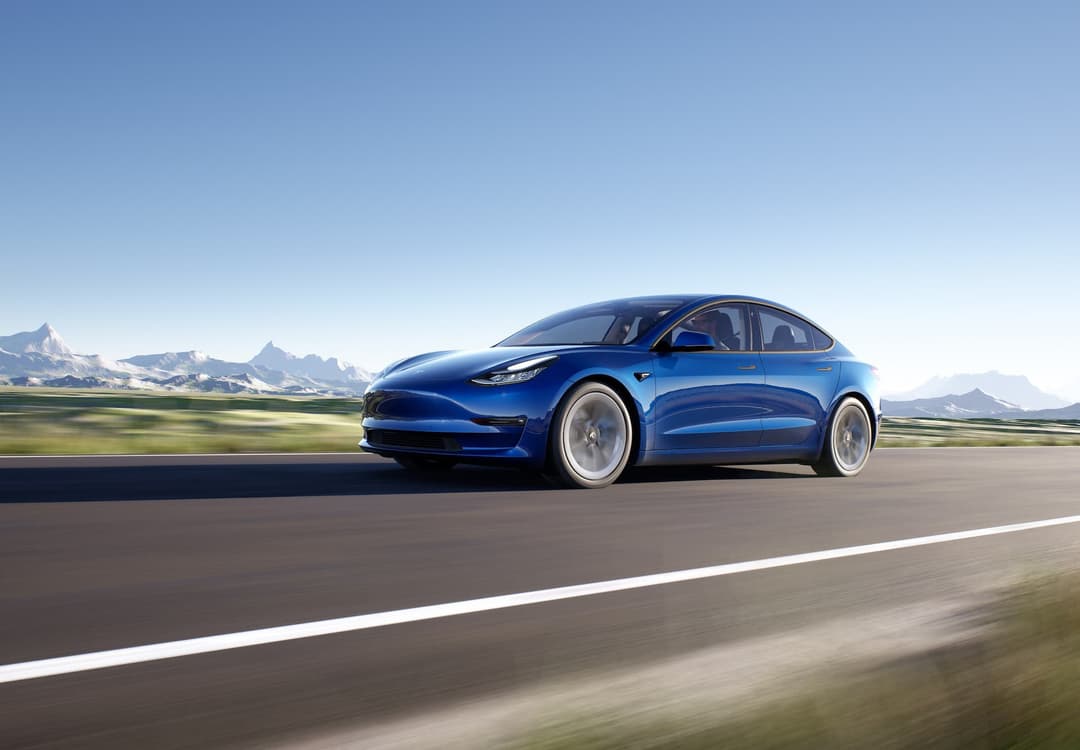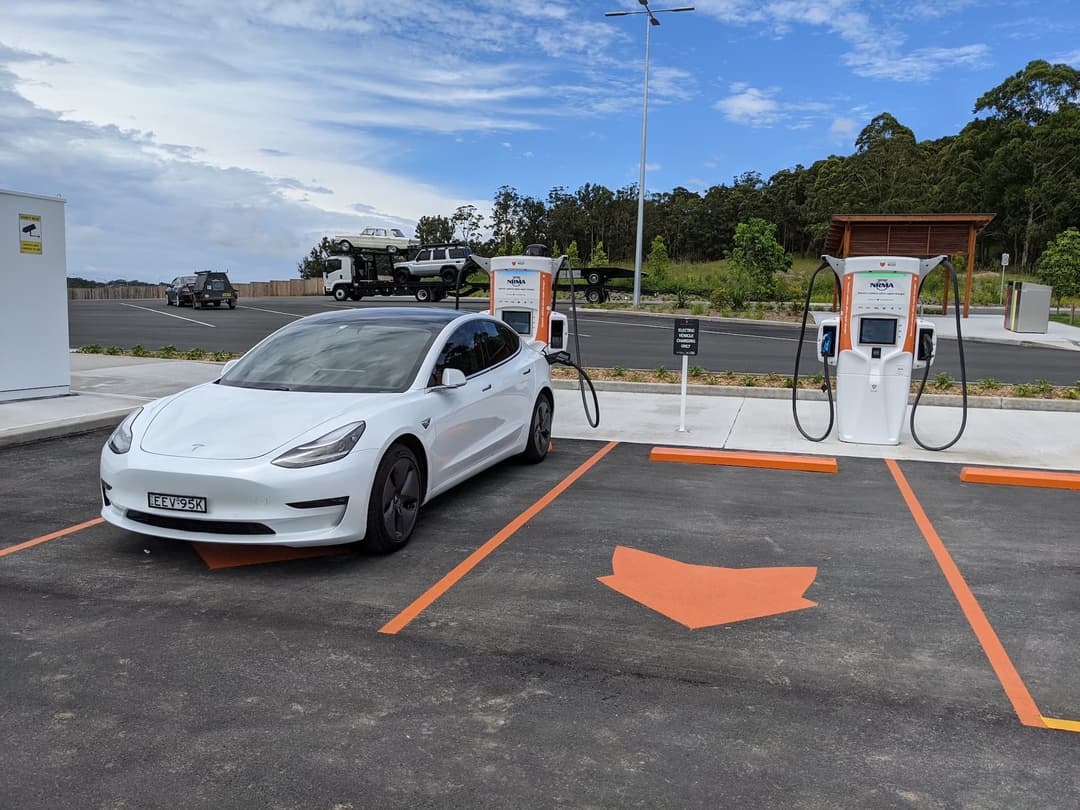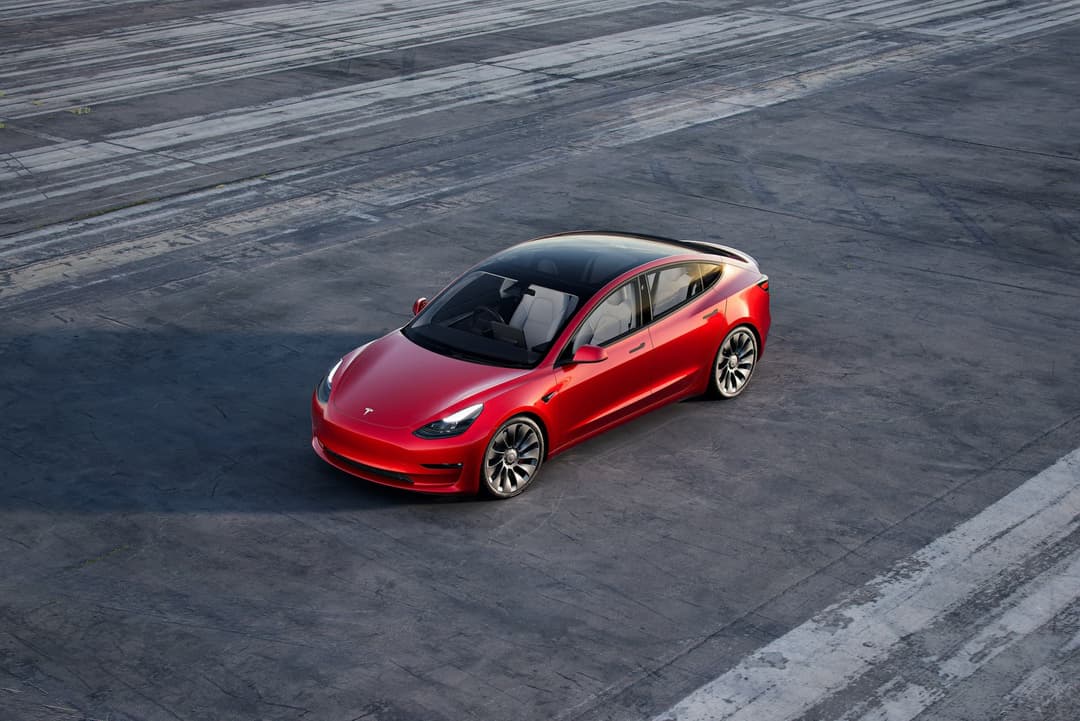
The Tesla Model 3 is by far the best selling electric vehicle (EV) in Australia, comprising seven out of every 10 electric cars sold in 2021.
With fuel prices soaring, interest in electric cars, in particular the Tesla Model 3, is at an all-time high. If you were to order a Model 3 today from the Tesla Australia website, wait times have stretched to six to nine months due to strong demand and the ongoing semiconductor supply shortage.
So how much does it really cost to own a Tesla Model 3? Sceptics say the Model 3 is still too expensive, whereas owners rave about how the running costs are "next to nothing".
In this guide, we are going to unbundle the true cost of owning a Tesla Model 3, including:
1. Upfront costs after eligible EV incentives
2. Ongoing costs (energy/fuel, maintenance and servicing)
3. Resale value and depreciation
4. Total Cost of Ownership compared to an 'equivalent' petrol car

How much does a Tesla Model 3 cost to buy?
The Model 3 comes in three variants that are distinguished by different drivetrain and battery pack configurations for different needs and budgets.
The base model, known simply as the Model 3 or the rear-wheel drive (RWD) version, is the cheapest and by far the most popular variant; it will be the subject of this guide.
Up until March 3 2021, the price for the RWD model started from $59,900 before on-road costs.
However, due to to a range of factors – battery and chip shortages and increased shipping costs, Tesla raised the price of the Model 3 RWD twice in the space of a few weeks, with the most recent price increase to $65,500 before on-road costs on June 17 2022.
It's hard to fault Tesla for increasing its prices given the inflationary pressures which are impacting not just Tesla but every sector of the global economy.
In case you're wondering if prices will rise again, this service provides price forecasting for the Tesla Model 3 which has proven to be very accurate to date.
Tesla Model 3 price after incentives
So how much is the price of a Tesla Model 3 following the inclusion of on-road costs and eligible government EV incentives?
We've broken down the state-by-state pricing below. These figures (pre-incentives) use the official Tesla calculator and they come within a few hundred dollars.
After government incentives, the Model 3 is still at least $25,053 (56 per cent) more expensive than the average new car in Australia, making it likely out of reach for the average Australian.
It should be noted, that the Model 3 is not an 'average car' in any sense. The design, performance and technology of the Model 3 is more akin to a luxury sedan such as a BMW 3 Series, which costs from $69,990 drive-away.
Tesla offers financing for the Model 3 on its website at a competitive 3.99 per cent per annumn rate. This is provided through its panel of lenders: Plenti, Macquarie and Pepper Money.

What are the running costs of the Tesla Model 3?
Fuel/energy
The fuel (electricity) costs for the Model 3 will vary depending on how much you drive and what you pay for the energy.
Below, we've outlined indicative energy rates for common electricity sources, ranging from home charging to public charging via the Tesla Supercharger network.
Comparing these rates to an equivalent petrol vehicle for the same distance covered, you'll be saving anywhere between 41 per cent to 85 per cent in 'fuel' costs.
Service and maintenance
According to Tesla, the Model 3 does not require "traditional oil changes, fuel filters, spark plug replacements or emission checks".
Unlike other manufacturers (both electric and petrol), Tesla vehicles does not have fixed or scheduled servicing intervals. It does however provide a recommended maintenance schedule for several items that should be checked or replaced periodically:
These costs equate to $225 per year, compared to $1567 per year for the average petrol vehicle.
Insurance
Electric cars are still in the early stages of adoption in Australia and as a result obtaining insurance may not be so straightforward.
The insurance for a Tesla Model 3 is likely to be more expensive than an equivalent petrol vehicle.
Insurance premiums we've seen quoted ranges between $1100 and $1500 per year. This depends on a range of factors that are beyond the scope of this guide, such as how much you use your car, personal driving history, where you park it at home and at work, and more.

Resale value
Given the short time the Model 3 has been on sale since 2019, there is insufficient data to confidently confirm what the long term level of depreciation will be.
Price guidance from Redbook for the base 2019 Tesla Model 3 Standard Range Plus shows average private and trade-in prices of $48,800 and $42,100 respectively.
This equates to 27 per cent to 39 percent depreciation in the first three years, compared to 58 per cent for the average car. Redbook figures are lagging indicators and generally on the conservative side.
A review of all the used Tesla Model 3 base models available for sale on Carsales shows 31 available in Australia with asking prices between $64,500 and $85,880. A brand new Model 3 can be ordered from Tesla's website for $65,500 before on-road costs.
Chief operations officer for Lloyds Auctions Lee Hames told News.com.au that a Model 3 already had bids up to $73,000 in an online auction with several hours to go when it would usually cost $68,000 bought new.
This is because the supply shortage of new cars is driving up demand and prices in the used car market.
It is unlikely that these inflated values for the Tesla Model 3 will hold in the long term. The next 24 months will likely see the electric car supply chain return to normal and the introduction of dozens of new electric car models, which will provide more supply and choice for electric car buyers in Australia.
Besides the current price inflation, will the Model 3 hold its value better in the long term than an equivalent petrol vehicle? We believe, bar some catastrophic recall issues, it almost certainly will.
Whenever a new, superior technology enters the market, it almost always holds its value better. Some examples include:
- Flat-panel TVs vs. CRT TVs
- Apple iPhone vs. traditional mobile phones
- Apple iPod vs. portable CD players/Walkman
- Netflix vs. FTA TV, Cinemas and BluRay/DVDs

Ownership costs compared to a petrol vehicle
We understand that a car purchase is both a financial and emotional decision.
How much one prioritises over the other depends on the individual. As we cannot quantify the emotional side, we've done our best here to quantify the financial considerations of owning a Model 3 in the long run.
Below we've crunched the numbers and benchmarked the Model 3 RWD against two petrol vehicles – a top-spec Toyota Camry Hybrid sedan and base model Audi A4 sedan.
The results
Compared to the Audi A4, both the upfront and running costs of the Model 3 are lower. Over five years of ownership you could save more than $15,000.
Compared to the Toyota Camry Hybrid, the Model 3 costs $12,792 more upfront, but its running costs are $1200 lower per year. It will take 8.7 years to recover the extra cost of the Model 3 from savings accrued from lower running costs.
This analysis does not factor in the impact of depreciation, which is likely to favour the Model 3 over both vehicles.
As per the above comparisons, purchasing a Tesla Model 3, may or may not be a sound 'financial' decision.
A study of EV owners commissioned by Griffith University found the most relevant considerations for buying EVs were reducing CO2 emissions and charging convenience – but not financial.
Despite its substantially lower running costs, the Tesla Model 3 is still not within reach of the average Australian.
The ‘affordable’ segment of the EV market will be filled by EVs like the MG ZS EV and the BYD Atto 3, which are both priced in the mid $40K mark and present a compelling overall package for the money.
About the author
Stay up to date with the latest EV news
- Get the latest news and update
- New EV model releases
- Get money savings-deal

